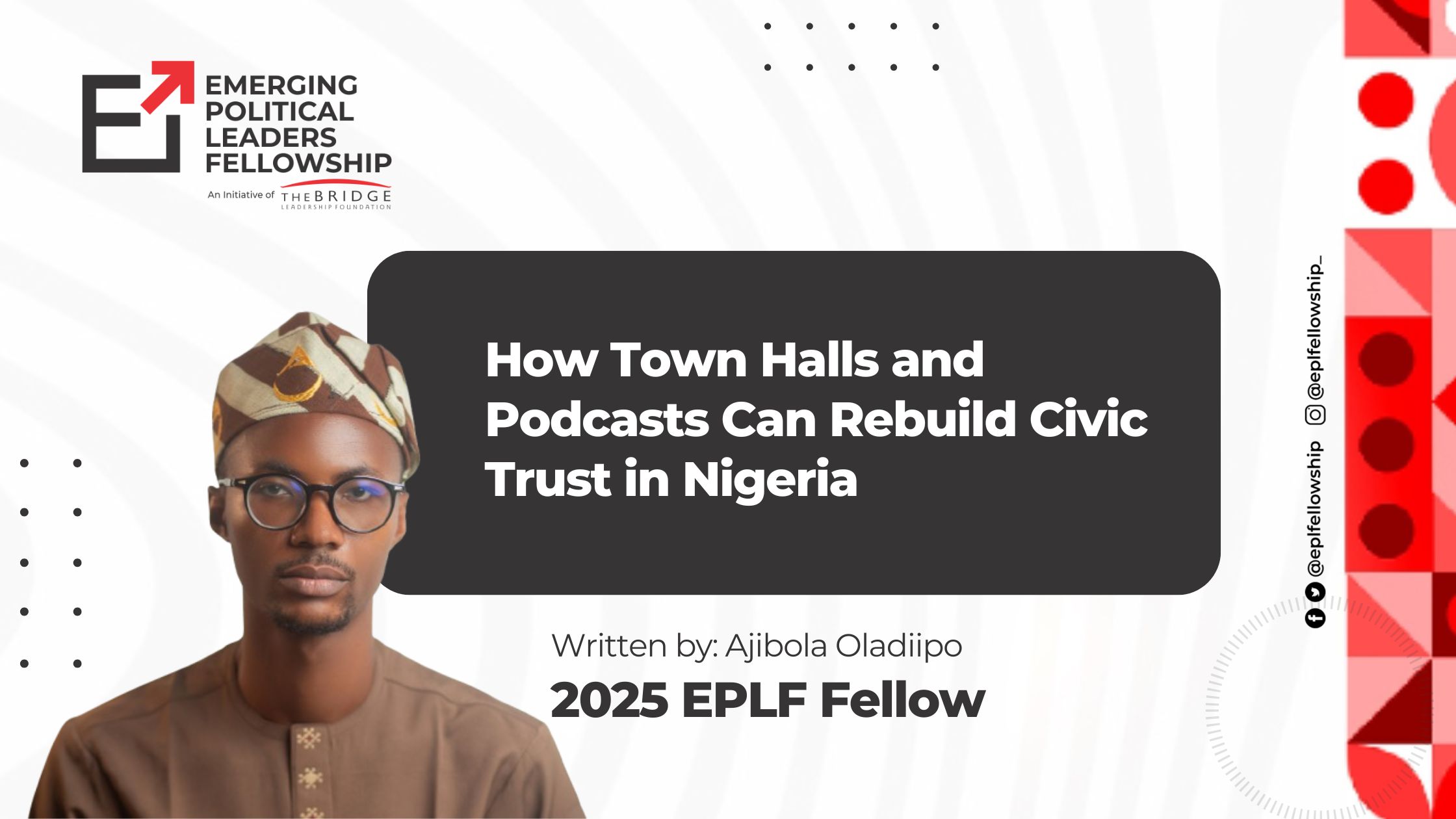An Article by Ajibola Oladiipo; 2025 EPLF Fellow
As Henry Kissinger reflects in his book Leadership, political legitimacy rests not only on effective governance but on the ability of leaders to embody the identity and aspirations of the people. This truth is especially urgent in Nigeria, where the gulf between citizens and the state has widened into a chasm of distrust. For many, the government feels distant and unresponsive. What our government does most of the time is to pass information without meaningful dialogue, often triggering public backlash. The promise of participatory democracy has faded, and has been replaced by elections marred by apathy and manipulation. Our democratic institutions remain in form, but their spirit is withering.
Restoring civic trust requires more than electoral reforms. It demands a renewal of public discourse, debates and engagement. Town halls and podcasts, often dismissed as trendy formats, are in fact powerful democratic tools. They create an opportunity for citizens to see, hear, and speak with those who govern them.
In a country scarred by post-independence authoritarianism, military rule, and democratic dysfunction, such direct engagement is essential. From the annulment of the 1993 elections to the impunity of the Fourth Republic, Nigerians have learned to expect little and participate even less. The dysfunction has bred disengagement, protest voting, and a quiet retreat from public affairs. Rebuilding trust starts with leaders listening painstakingly and showing up with presence, not just power.
Town halls should be open, participatory forums for dialogue between leaders and citizens. When properly planned and regularly convened, they offer a space where democracy becomes visible and engaging. They offer four critical benefits:
- Proximity: reducing the emotional and physical distance between leaders and constituents.
- Accountability: compelling leaders to explain actions in plain language to the people they serve especially those who do not own smartphones
- Deliberation: facilitating grassroots input on public priorities.
- Symbolic Renewal: embodying democracy as dialogue, not monologue.
But town halls must be frequent, decentralized, multilingual, inclusive, and publicly accessible online and offline.
Unlike town halls, podcasts offer flexibility and digital scalability. Podcasts break away from the rigidity of state-owned media, allowing for plural narratives. Leaders, civil society actors, and youth voices can use this platform to humanize policy, share the story behind decisions, and engage in honest reflection. Listeners can respond via comments, emails, or social shares.
A local government chairman could host a weekly podcast explaining budgets, responding to questions, and spotlighting community heroes. The effect would not merely be informational but inspirational. Through transparency and consistency, it will rekindle a fire in the people and restore trust in that system.
Town halls and podcasts can rebuild trust by making leadership more present, honest, and connected. When used consistently, they shift politics from performance to participation. We would have created a political culture where leaders listen, not just to speak, and citizens are truly heard. These simple tools can transform governance into a shared, ongoing conversation, that gather insights, clarify issues, and demonstrate commitment.
In the sacred space between call (voice) and response, democracy can be reborn.
Note: All of these are thoughts from our fellows.


Comment (1)
Wow! This is enlightening.
Comments are closed.